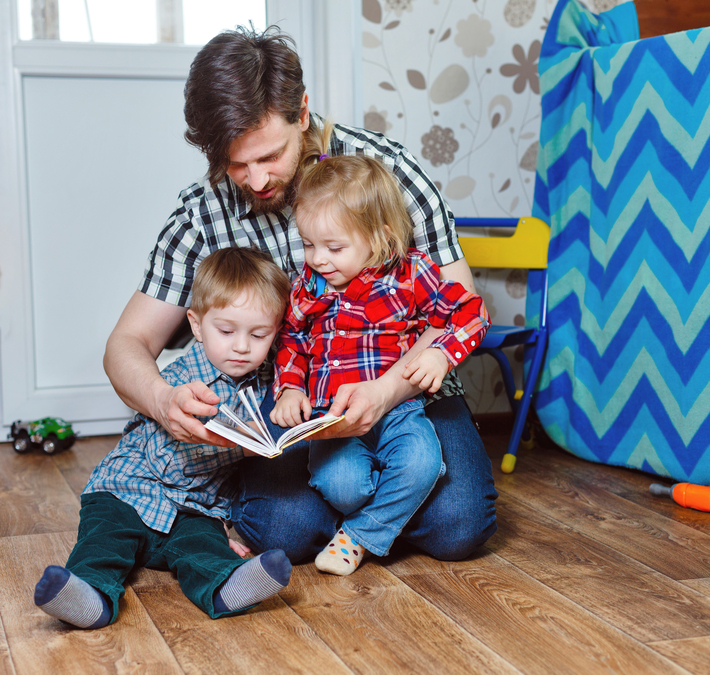When parents say they’re waiting until their kids are older to start reading to them, Amy Schardein, early childhood librarian with the Kenton County Public Library, usually asks this question: “Have you ever met a 1-year-old who doesn’t know how to use a cell phone?”
“They know how to use it because they see their parents use it every day,” she said. “If a 1-year-old can learn how to operate a cell phone – or a remote control – they can certainly learn how to use a book.”
Schardein is a huge proponent of reading to babies and toddlers because it makes learning to read easier for them later, she said. Toddlers will start to recognize letters, and even babies will start to realize that books are consistent, that the words are the same every time the book is read.
Plus, “the earlier you introduce books, the better a child’s book-handling skills will be,” Schardein said. “A lot of what young kids are learning is book knowledge ““ how books work. You can’t fault a toddler for ripping up a book if you haven’t taught him how to handle it.”
Also, reading to your baby or toddler is a great way to bond with him or her, said Lise Tewes, coordinator of children’s services with the Kenton County Public Library’s Erlanger branch. Even if your baby is still in utero.
“We know by the time a baby is six months’ gestation, he or she can hear sounds,” she said. “Babies are born recognizing their mother’s voice.”
And, if you think your baby or toddler is learning enough words just from hearing you speak every day, think again: “When we speak, we tend to use 20 percent of the words we know 80 percent of the time,” Schardein said. “We have our go-to phrases that we use on an everyday basis. Those are the words your children are using all the time. That’s why reading to your child is so important. In a book, they’re more likely to encounter words they’re not hearing every day.
“Think about the Jack and Jill nursery rhyme, for example,” she said. “Jack and Jill ‘fetch’ a ‘pail’ of water, then they ‘tumble’ down the hill.” Those are words we don’t use very often. Hearing those new and interesting words helps children’s brains grow.”


